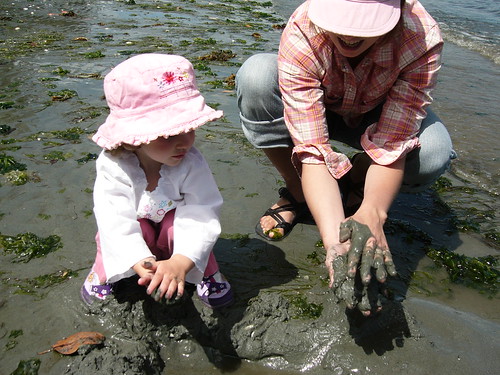GROUP WORK BITES BACK
I'm just fresh from class and wanted to say a couple things about direct/indirect learning.
I think this is a tricky area especially when we think of indirect learning as "group work." I, for one, was and can be absolutely terrified of group work. My entire degree (English) was done almost entirely without a stick of group work - the classes were structured around lectures, note-taking, and essays. I was comfortable with that, but at times didn't feel challenged. When I took an Environmental Studies course in my last semester for some variety, I nearly dropped the class when I learned of the daily group discussions we would be required to have and the large group project at the end. Luckily I decided to take up the challenge and learned some valuable things about myself and the environment. Furthermore, I felt like I was actually doing something that affected the real world, rather than talking about form and style and why Margaret Atwood is God.
So far I have found that education courses at UVIC are heavy on the group work. As my teachable subject is English, I was required to take 3 education courses as prerequisites last year. In at least one of the classes we were broken into different groups daily and asked to complete some task. This became a chore because it was used so much and was so predictable. The class became monotonous and stale, much like Matt's math class at Oak Bay High.
Obviously, there needs to be a balance between lectures, group work and a variety of other exciting options out there. I'm looking forward to learning how I can incorporate a variety of teaching styles, while still maintaining a certain level of comfort amongst my students.

learning about mud

5 Comments:
I'm fond of group work in bits. I don't like group projects that require you to work for long periods of time outside of class time. This is my own bias because I usually did not have time to meet with other people and usually ended up either doing most of the work or completely slacking off. Group work in class though I really like because it is good to discuss readings and develop concepts with each other, it helps students to get a better grasp of ideas and facilitates learning. Also teachers can guide the learning while in class and be sure that their students are actually working. I agree with the students today that it is important to change it up. What kind of working arrangements work best for the rest of you?
4:16 PM
I think Will's point is important - that as teachers, it is our responsibility to help with student anxiety on group work; particularly if we are deciding on group divisions. I too was not an outgoing person, and too frequently teachers just expected students to feel comfortable working with peers (or else expected them to "get over" their anxieties on their own). Now, as to how to do that.....?
12:07 AM
Let's begin with how to create a safe classroom. How to you build trust between students?
6:34 AM
One thing I was wondering about is if scaffolding groups for class work is a good idea for creating a safe environment. I know that certain teaching philosophies say that it is one of the best ways to learn, but having good students with the bad students, or breaking up the cliques often causes an unsafe environment.
This may be an arguement for letting students stay in groups with those whom they have built up trust with, and not be forced into difficult groups.
I think that teaching students how to work in difficult groups is a good skill to have. However, it is most difficult to teach that while trying to teach another completely unrelated subject (eg. physics problems). Maybe group work could be taught in a class like CAPP or something similar?
3:05 PM
I agree with Mar, it takes time to build trust and safety especially if a student is already anxious or has a history of being unsafe. It's alot to expect from your classroom, but having very set expectations and following through with them is a good first step.
What do you guys/girls think about the "checking in" process? That students (depending on the subject area) get a chance to bring in a concern or question that they present to the class. Then maybe they are be responsible for leading a discussion around it (like we are on Friday--assuming that you have taught them how to properly discuss something)?
I know that we aren't allowed to pray in public schools but the idea of devotions and pray is wonderful for creating community and safety? I saw it work wonderfully and I am wondering if there is anyway to modify that for a public school system?
9:23 PM
Post a Comment
<< Home